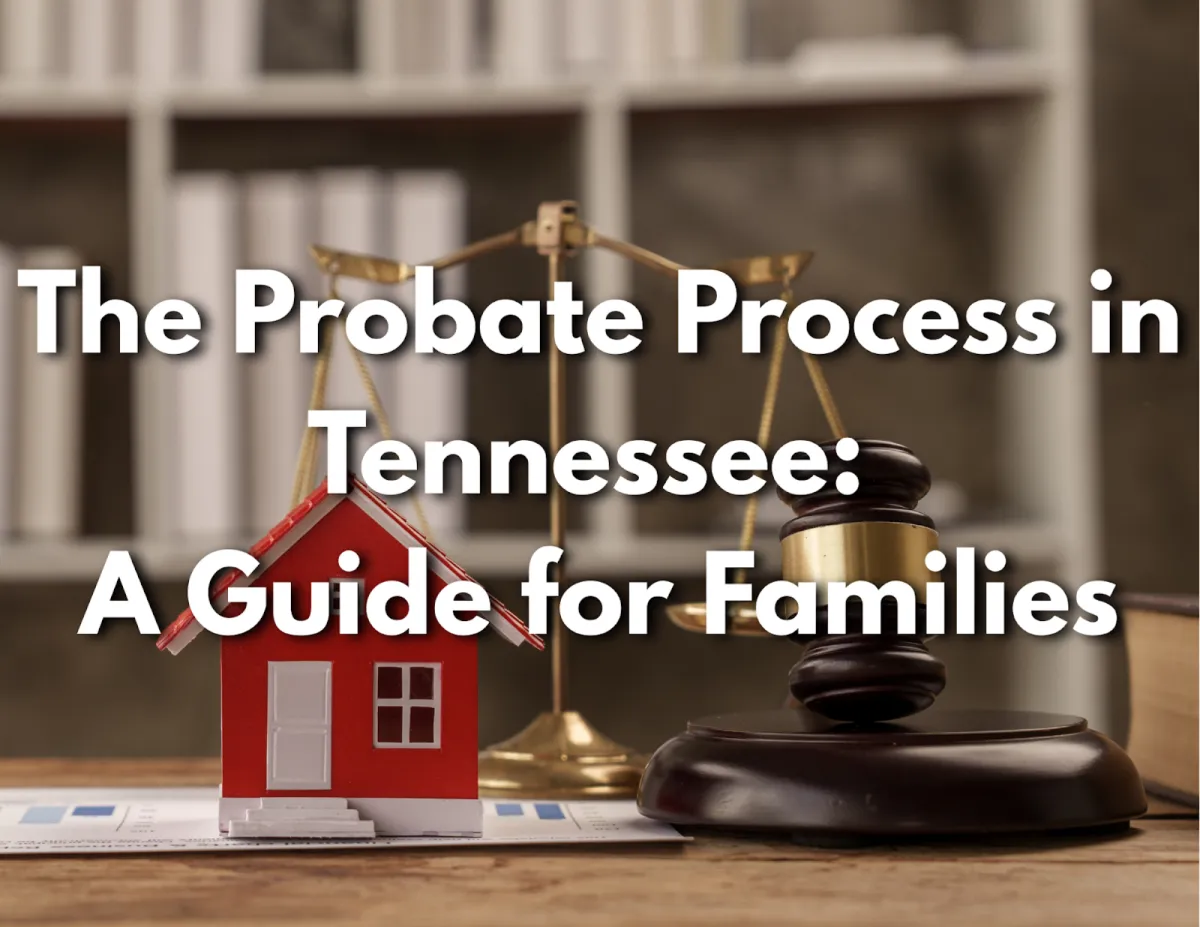How Much Is Your Home Worth?

The Probate Process in Tennessee: A Guide for Families
Losing a loved one is never easy, and dealing with their estate can feel overwhelming. If you find yourself in the middle of the probate process in Tennessee, you’re not alone. This legal process is designed to ensure that a person's debts are paid and their assets are distributed according to their will—or state law if there’s no will. Whether you’re an executor, administrator, or heir, understanding the probate process can help ease the burden during this difficult time.
Here’s a breakdown of what to expect when going through probate in Tennessee:
1. Understanding Probate in Tennessee
Probate is the legal process of administering a deceased person’s estate. This involves validating the will, paying debts, and distributing assets. In Tennessee, probate is handled by the Chancery Court in the county where the decedent lived. If there’s no will, the state’s laws of intestate succession determine how the estate is divided.
2. The Steps of the Probate Process
Filing the Will: The first step is submitting the deceased person’s will to the court. This will determine how assets are to be distributed.
Appointment of Executor or Administrator: If the deceased appointed an executor in their will, that person will take charge. If not, the court will appoint an administrator.
Inventory and Appraisal of Assets: The executor or administrator must identify and appraise the estate’s assets.
Paying Debts and Taxes: Before distributing assets, any debts, including funeral costs and taxes, must be paid.
Distribution of Assets: Once debts are settled, the remaining assets are distributed according to the will or Tennessee’s laws of intestate succession.
3. How Long Does Probate Take in Tennessee?
The probate process can take anywhere from 6 months to a year, depending on the complexity of the estate. If there are disputes or if the estate involves complicated assets like real estate, it may take even longer.
4. What Happens If There’s No Will?
If someone dies intestate (without a will), Tennessee’s laws will determine how the estate is distributed. The surviving spouse, children, and other family members will inherit assets based on the state’s guidelines. While this can be a complicated process, an experienced probate attorney can guide the family through these waters.
5. Common Probate Mistakes to Avoid
Navigating probate can be tricky, and there are some common mistakes that families often make:
Not Consulting a Lawyer Early Enough: Probate can be a complicated legal process, and having an attorney early on can help you avoid pitfalls.
Failing to Keep Proper Records: Every step of the probate process needs documentation. Keep track of all communications, expenses, and inventory lists to avoid confusion later.
Underestimating the Cost of Probate: Probate costs, including court fees, attorney fees, and the cost of appraisals, can add up quickly. Make sure you’re prepared for these expenses.
6. What Happens to the Property During Probate?
If real estate is part of the estate, it may need to go through probate before it can be sold. The property will be included in the estate’s inventory and must be appraised. If the heirs want to sell the property, the executor will typically need to get court approval before proceeding.
It’s also important to note that inherited property may have tax implications or require repairs before it can be sold, so it’s essential to have a team of experts to help guide you through the process.
7. How Can the Jeff LaRue Team Help?
The probate process can be complicated, especially if the estate includes real estate. At Jeff LaRue Team, we specialize in helping families navigate the sale of inherited homes, from understanding the legal steps to preparing the property for sale. Whether you're looking to sell quickly or maximize the home's value, we’re here to ensure a smooth process every step of the way.
8. How Probate Affects Inherited Property Sales
If you’ve inherited a home, you may not be able to sell it immediately until probate is complete. The court has to ensure that all legal requirements are met before the home can change hands. This can take time, and often the estate will need to go through additional procedures such as paying off debts and taxes.
If you’re considering selling inherited property, it’s crucial to have a team that understands both the legal and financial aspects of the transaction. At Jeff LaRue Team, we assist families by handling everything from property valuation to navigating the sale process.
Key Tips for Families Navigating Probate
Keep Records: It’s important to keep detailed records of all communications, financial transactions, and appraisals during the probate process.
Consult with Experts: Don’t hesitate to reach out to professionals like probate attorneys, accountants, and real estate experts to ensure everything is handled correctly.
Be Patient: Probate can be time-consuming, but understanding the process and staying organized can help make it more manageable.
Conclusion
Though probate in Tennessee may seem intimidating, understanding the process can make a huge difference. By taking it step by step, seeking expert advice, and being patient, you can navigate the process with greater peace of mind.
If you need help with probate real estate or have any questions about the probate process, don’t hesitate to contact the Jeff LaRue Team. We’re here to make this process as smooth as possible for you and your family. Contact us today for a no-obligation consultation!
Disclaimer: This information is for general knowledge and informational purposes only and does not constitute financial, tax, or legal advice. We are not lawyers, financial advisors, accountants, loan officers, or mortgage brokers. Please consult with a qualified professional to understand your specific needs.





